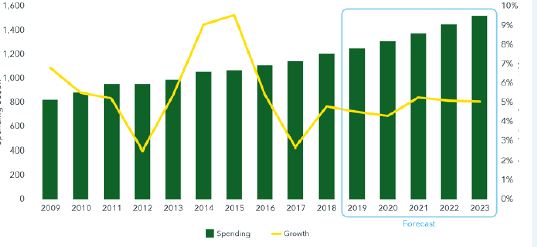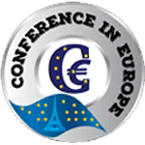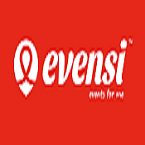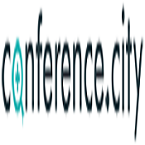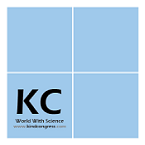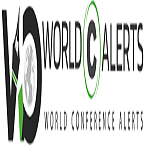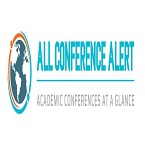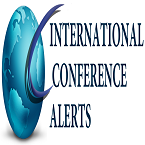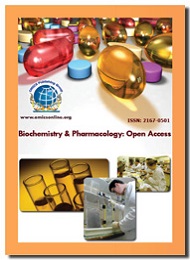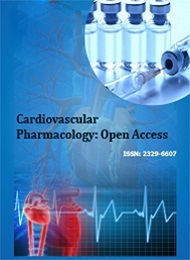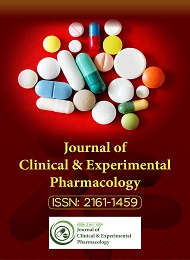Theme: Grooming the Pharmacological Boundaries for Drug Discovery and Development
Pharmacology 2024

Welcome Message
by
Roy Krishna, Touro University, USA.
Dear Colleagues,
On behalf of Conference Series and the Organizing Committee it gives me immense pleasure to welcome you all to the Pharmacology 2024 going to be held during October 31-November 01, 2024 in Amsterdam, Netherlands.
This year’s Pharmacology 2024 addresses various Clinical Pharmacology, Biomedical Analysis and drug safety Testing.
Attendees have multiple programs and tracks to benefit from and we also welcome our young researchers and contributors. No doubt this gathering is indeed a melting pot for global researchers, academicians and scientists.
Coming to venue; Amsterdam is the largest city in Netherlands, brims with activity day and night. We hope you get to enjoy the countless activities and gastronomic scenes.
We hope to have the opportunity to explore the sights, unparalleled history and cuisine of this cosmopolitan capital.
Roy Krishna, PhD, FCP.
Professor-Pharmacology,
College of Osteopathic Medicine,
Touro University, Nevada,
USA.
Conference Series invites all the participants across the globe to attend 37th World Congress on Pharmacology Scheduled during October 31- November 01, 2024 in Amsterdam, Netherlands. This includes prompt keynote presentations, Oral talks, Poster presentations and Exhibitions.
Pharmacology 2024 focuses on the importance to understand drugs and how they can affect human physiology. It is with better understanding of Pharmacology one can know the right dosage and dosage forms of drugs. More research in pharmacology deals with identifying and responding to drug interactions and its side effects along with its mechanism of action, its therapeutic index and thereby treat accordingly. More intensive study with the interaction between drug and its therapeutic effect helps to identify the properties of ideal drugs.
Why to attend?
Join your peers around the world focused on learning about Pharmacology and related advances, which is your single best opportunity to reach the largest assemblage of participants from the Pharmacology community, conduct demonstrations, distribute information, meet with current and potential professionals, make a splash with a new research works, and receive name recognition at this 2-day event. World-renowned speakers, the most recent research, advances, and the newest updates in Pharmacology are hallmarks of this conference.
Target Audience:
- Students, Scientists, Researchers, and Faculty of Pharmaceutical Universities
- Medical Colleges, Researchers from Pharmaceutical Companies, Pharmacy Associations and Societies
- Business Entrepreneurs, Training Institutes, Software developing companies
- Manufacturing Medical Devices Companies, CRO and Data Management Companies.
Young Scientist Benefits:
- Our conferences provide best Platform for your research through oral presentations.
- Share the ideas with both eminent researchers and mentors.
- Young Scientist Award reorganization certificate and memento to the winners
- Young Scientists will get appropriate and timely information by this Forum.
- Platform for collaboration among young researchers for better development
- Award should motivate participants to strive to realize their full potential which could in turn be beneficial to the field as whole.
Track 01: Pharmacology
Pharmacology is the scientific study of how drugs interact with biological systems. It encompasses the understanding of drug composition, properties, interactions, and mechanisms of action. Pharmacologists work to discover new medications, improve existing ones, and understand the side effects and potential risks associated with drug therapies. This field is crucial in the development of treatments for various diseases and conditions, contributing significantly to advancements in medicine and healthcare. By exploring both the beneficial and adverse effects of drugs, pharmacology aims to enhance patient care and therapeutic outcomes, ensuring safe and effective use of pharmaceuticals.
Related Societies: American Association of Pharmaceutical Scientists, American Association of Pharmacy Technicians, American College of Clinical Pharmacology, American College of Clinical Pharmacy (ACCP), and American Institute of the History of Pharmacy
Track 02: Neuro Pharmacology
Neuropharmacology is the study of how drugs affect the nervous system and brain function. It focuses on understanding the mechanisms by which medications influence neuronal communication, behavior, and cognition. This field plays a vital role in developing treatments for neurological and psychiatric disorders such as epilepsy, depression, anxiety, and Parkinson's disease. By exploring the interactions between drugs and neural circuits, neuropharmacologists aim to design therapies that can modulate brain activity, alleviate symptoms, and improve patients' quality of life. Advances in neuropharmacology are essential for creating innovative solutions to complex brain-related health challenges.
Related Societies: European Federation for Pharmaceutical Sciences (EUFEPS), Italian Society for Pharmaceutical Sciences (SISF), Spanish Society of Pharmaceutics and Pharmaceutical Technology (SEFC), European Behavioural Pharmacology Society (EBPS), Belgian Society of Pharmaceutical Sciences
Track 03: Toxicology
Toxicology is the scientific study of the adverse effects of chemicals on living organisms. It examines the nature, sources, and mechanisms of toxic substances, as well as their impact on health and the environment. Toxicologists assess the risk and exposure levels of toxins, striving to understand how these substances cause harm and how to mitigate their effects. This field is essential for public health, as it informs the safe use of chemicals in industries, pharmaceuticals, and everyday products. By identifying hazardous substances and establishing safety standards, toxicology plays a vital role in protecting human health and environmental well-being.
Related Societies: The Pharmaceutical Society of Australia, Kuwait Pharmaceutical Association, Maryland Pharmacists Association, Turkish Pharmacists Association, Utah Pharmaceutical Association
Track 04: Forensic Toxicology
Forensic toxicology involves the analysis of biological samples to detect and identify drugs, poisons, and chemicals in legal investigations. It plays a crucial role in determining the cause of death, substance abuse, and poisoning cases. By applying toxicological principles, forensic toxicologists help uncover crucial evidence, ensuring justice in criminal and civil cases. Their work is essential in interpreting toxicological findings, providing expert testimony, and contributing to public health and safety.
Related Societies: American Association of Pharmaceutical Scientists, American Association of Pharmacy Technicians, American College of Clinical Pharmacology
Track 05: Molecular and Clinical Pharmacology
Molecular and Clinical Pharmacology bridges the gap between laboratory research and patient care. Molecular pharmacology focuses on understanding drug interactions at a cellular and molecular level, revealing mechanisms that drive therapeutic effects. Clinical pharmacology applies these insights to patient treatment, optimizing drug efficacy and safety. Together, they advance personalized medicine, guiding precise drug dosing, minimizing adverse effects, and improving overall patient outcomes by integrating scientific discoveries with clinical practice.
Related Societies: European Federation for Pharmaceutical Sciences (EUFEPS), Italian Society for Pharmaceutical Sciences (SISF), Spanish Society of Pharmaceutics and Pharmaceutical Technology (SEFC), European Behavioural Pharmacology Society (EBPS), Belgian Society of Pharmaceutical Sciences
Track 06: Pharmacovigilance Significance and Scope
Pharmacovigilance is vital for ensuring drug safety and efficacy. It involves the detection, assessment, and prevention of adverse drug reactions and other drug-related issues. By continuously monitoring pharmaceuticals, pharmacovigilance enhances patient safety, informs regulatory decisions, and guides healthcare practices. Its scope includes analyzing real-world data, conducting post-marketing surveillance, and fostering global health collaboration. This field is essential for maintaining public trust in medications, driving improvements in drug development, and promoting overall health care quality.
Related Societies: American Association of Pharmaceutical Scientists, American Association of Pharmacy Technicians, American College of Clinical Pharmacology
Track 07: Recent Advances in Pharmacology and Toxicology
Recent advances in pharmacology and toxicology have revolutionized drug development and safety. Innovations include targeted therapies and personalized medicine, which tailor treatments to individual genetic profiles for enhanced efficacy. Advancements in computational modeling and AI are accelerating drug discovery and toxicity prediction. Novel drug delivery systems, such as nanoparticles, improve therapeutic outcomes. Additionally, improved biomarker identification enhances early detection of adverse effects, ensuring safer pharmaceuticals and more effective treatments.
Related Societies: American Association of Pharmaceutical Scientists, American Association of Pharmacy Technicians, American College of Clinical Pharmacology, American College of Clinical Pharmacy (ACCP), American Institute of the History of Pharmacy
Track 08: Pre-clinical and Clinical Trails
Pre-clinical and clinical trials are essential stages in drug development. Pre-clinical trials involve laboratory and animal studies to evaluate the safety and efficacy of a drug candidate. Successful outcomes lead to clinical trials, which are conducted in human volunteers across multiple phases. These trials assess the drug’s safety, dosage, effectiveness, and side effects. Together, these rigorous evaluations ensure that new medications are both safe and effective before they reach the market.
Related Societies: The Pharmaceutical Society of Australia, Kuwait Pharmaceutical Association, Maryland Pharmacists Association, Turkish Pharmacists Association, Utah Pharmaceutical Association
Track 09: Cardio Vascular Pharmacology
Cardiovascular pharmacology studies the effects of drugs on the heart and vascular system. It aims to develop and optimize treatments for conditions like hypertension, heart failure, and arrhythmias. By understanding how medications influence cardiovascular function, this field enhances the management of heart diseases, improves patient outcomes, and guides the development of new therapies. Research in cardiovascular pharmacology is vital for advancing heart health and combating cardiovascular disorders.
Related Societies: American Association of Pharmaceutical Scientists, American Association of Pharmacy Technicians, American College of Clinical Pharmacology, American College of Clinical Pharmacy (ACCP), American Institute of the History of Pharmacy
Track 10: Ecopharmacovigilance
Ecopharmacovigilance monitors the environmental impact of pharmaceuticals post-release. It investigates how drugs enter ecosystems, their persistence, and potential effects on wildlife and ecosystems. By assessing ecological risks, it aims to mitigate harm and develop sustainable pharmaceutical practices. Ecopharmacovigilance emphasizes the importance of considering environmental consequences in drug development, usage, and disposal, ensuring a balance between human health and environmental protection in the pharmaceutical industry's activities.
Related Societies: European Federation for Pharmaceutical Sciences (EUFEPS), Italian Society for Pharmaceutical Sciences (SISF), Spanish Society of Pharmaceutics and Pharmaceutical Technology (SEFC), European Behavioural Pharmacology Society (EBPS), Belgian Society of Pharmaceutical Sciences
Track 11: Drug Safety Testing
Drug safety testing involves rigorous evaluation of pharmaceuticals to assess their potential risks and benefits before they reach the market. Through preclinical and clinical trials, researchers analyze drug efficacy, side effects, and interactions to ensure patient safety. These tests identify any potential hazards, guiding regulatory decisions and informing healthcare professionals and consumers about proper drug usage. Ultimately, drug safety testing plays a critical role in safeguarding public health and enhancing the quality of healthcare delivery.
Related Societies: The Pharmaceutical Society of Australia, Kuwait Pharmaceutical Association, Maryland Pharmacists Association, Turkish Pharmacists Association, Utah Pharmaceutical Association
Track 12: Immunopharmacology
Immunopharmacology explores the interactions between drugs and the immune system. It delves into how medications modulate immune responses, aiming to treat immune-related disorders like autoimmune diseases, allergies, and cancer. By understanding how drugs influence immune function, immunopharmacologists develop novel therapies that target specific components of the immune system, optimizing treatment outcomes while minimizing adverse effects. This field plays a vital role in advancing immunotherapy and personalized medicine, offering new avenues for managing complex immunological conditions.
Related Societies: American Association of Pharmaceutical Scientists, American Association of Pharmacy Technicians, American College of Clinical Pharmacology, American College of Clinical Pharmacy (ACCP), American Institute of the History of Pharmacy
Track 13: Ocular Pharmacology
Ocular pharmacology delves into the study of drugs and their effects on the eyes. It encompasses understanding how medications interact with ocular tissues to treat conditions such as glaucoma, macular degeneration, and infections. Ocular pharmacologists explore drug delivery methods, dosage optimization, and ocular-specific side effects to enhance treatment outcomes while minimizing risks. Their research and insights contribute to the development of innovative therapies, improving vision care and quality of life for patients.
Related Societies: American Association of Pharmaceutical Scientists, American Association of Pharmacy Technicians, American College of Clinical Pharmacology, American College of Clinical Pharmacy (ACCP), American Institute of the History of Pharmacy
Track 14: Clinical Pharmacy and Pharmacotherapeutics
Clinical Pharmacy and Pharmacotherapeutics combine pharmaceutical expertise with patient care. Clinical pharmacists work directly with healthcare teams to optimize medication therapy, ensuring safe and effective use of drugs. They conduct medication reviews, provide drug information, and offer recommendations tailored to individual patient needs. By integrating pharmacological knowledge with clinical practice, they contribute to better treatment outcomes, reduced medication errors, and improved patient quality of life.
Related Societies: European Federation for Pharmaceutical Sciences (EUFEPS), Italian Society for Pharmaceutical Sciences (SISF), Spanish Society of Pharmaceutics and Pharmaceutical Technology (SEFC), European Behavioural Pharmacology Society (EBPS), Belgian Society of Pharmaceutical Sciences
Track 15: Drug Screening and Discovery
Drug Screening and Discovery is the process of identifying potential compounds for therapeutic use. Through high-throughput screening techniques, researchers assess thousands of compounds for biological activity against specific targets, such as proteins or enzymes involved in disease pathways. Successful candidates undergo further testing to evaluate safety, efficacy, and pharmacokinetic properties. This iterative process leads to the development of new medications, addressing unmet medical needs and improving patient care. Drug screening and discovery play a crucial role in advancing medicine and treating complex diseases.
Related Societies: Societies in Asia: The Pharmaceutical Society of Australia, Kuwait Pharmaceutical Association, Maryland Pharmacists Association, Turkish Pharmacists Association, Utah Pharmaceutical Association
Track 16: Recent Advances in Pharmacology and Toxicology
Recent advances in Pharmacology and Toxicology have revolutionized drug development and safety assessment. Pharmacology has witnessed breakthroughs in targeted drug delivery, precision medicine, and immunotherapy, optimizing treatment outcomes while minimizing side effects. In Toxicology, advancements in analytical techniques have enhanced the detection and characterization of toxins and pollutants, contributing to environmental and public health protection. These strides signify a promising future for both fields, promising improved therapies and safer environments for individuals worldwide.
Related Societies: Societies in Asia: The Pharmaceutical Society of Australia, Kuwait Pharmaceutical Association, Maryland Pharmacists Association, Turkish Pharmacists Association, Utah Pharmaceutical Association.
Track 17: Safety Pharmacology
Safety Pharmacology evaluates the potential risks and adverse effects of pharmaceuticals on physiological functions. It assesses cardiac, respiratory, and central nervous system responses to ensure drug safety before human trials. By identifying potential concerns early in drug development, Safety Pharmacology plays a vital role in protecting patient well-being and improving drug regulatory processes.
Related Societies: American Association of Pharmaceutical Scientists, American Association of Pharmacy Technicians, American College of Clinical Pharmacology, American College of Clinical Pharmacy (ACCP), American Institute of the History of Pharmacy
Track 18: Clinical Research Statistics
Clinical Research Statistics plays a vital role in evaluating the effectiveness and safety of medical treatments through rigorous data analysis. It involves designing studies, collecting data, and applying statistical methods to interpret results accurately. These statistical analyses help researchers draw meaningful conclusions, assess treatment outcomes, and identify potential biases or confounding factors. By providing reliable evidence, clinical research statistics ensures the validity and credibility of research findings, guiding clinical decision-making and ultimately improving patient care.
Related Societies: European Federation for Pharmaceutical Sciences (EUFEPS), Italian Society for Pharmaceutical Sciences (SISF), Spanish Society of Pharmaceutics and Pharmaceutical Technology (SEFC), European Behavioural Pharmacology Society (EBPS), Belgian Society of Pharmaceutical Sciences
Track 19: Adverse Drug Reactions
Adverse Drug Reactions (ADRs) are unintended and harmful effects resulting from medication use. They can range from mild reactions like nausea to severe ones such as organ damage. Understanding ADRs is crucial in medication safety and patient care. Healthcare professionals monitor for ADRs to mitigate risks, adjust treatment plans, and improve medication outcomes. Additionally, reporting ADRs to regulatory authorities helps enhance drug safety profiles, guiding future prescribing practices and promoting public health.
Related Societies: American Association of Pharmaceutical Scientists, American Association of Pharmacy Technicians, American College of Clinical Pharmacology, American College of Clinical Pharmacy (ACCP), American Institute of the History of Pharmacy
Track 20: Bio Chemical Pharmacology
Biochemical pharmacology explores the biochemical mechanisms underlying drug action within the body. It delves into how drugs interact with biological systems at the molecular level, impacting cellular processes and signaling pathways. By elucidating these mechanisms, biochemical pharmacologists gain insights into drug efficacy, metabolism, and toxicity. This field is instrumental in drug discovery, development, and optimization, guiding the design of new medications with enhanced therapeutic properties and fewer side effects.
Related Societies: The Pharmaceutical Society of Australia, Kuwait Pharmaceutical Association, Maryland Pharmacists Association, Turkish Pharmacists Association, Utah Pharmaceutical Association
The pharmaceutical industry comprises of companies that are engaged in research, development, manufacture and distribution drugs for human or veterinary use. The primary function of the research-based pharmaceutical corporations is to create value by discovering and producing effective medicines, vaccines and services that improve patients’ well-being, and can be sold in markets at a profit. As well as increasing shareholder value, this contributes significantly to the quality and protection of life and helps make the world a better place. In the past 60 years, innovation and technology have driven huge improvements in global health.
Every clinical trial in Austria has to be approved by the Federal Office for Safety in Healthcare and needs a positive opinion of the ethics committee. Details on terminological definitions and on the requirements and implementation of clinical trials are set out in the Medicinal Products Act in § 2a and § 28 to § 48. The objective is to prove the effectiveness and tolerability of these forms of treatment and to improve the medical care of future patients. In principle, a distinction is made between clinical trials (intervention studies) and non-interventional studies.
Market Analysis of Global Pharmaceutical Industries
The global $1.12 trillion market in 2022, will rise at a faster clip during 2016-2020, then slow down a bit as major patent expiration take hold. It is expected that the global market declined by 1.0% in 2015, but will grow by 4.8% this year. Prescription sales excluding generics will rise 4.4% this year, and expected to reach $1.006 trillion in 2022. Generics sales will increase from $73 billion in 2015 to $115 billion in 2022, and constitute 10.2% of prescription sales at that point only 0.3 percentage points more than it is now.
The global market for drug discovery technologies and products was worth $38.4 billion in 2011. This figure is projected to reach $41.4 billion in 2012 and $79 billion in 2017, a five-year compound annual growth rate (CAGR) of 13.8%. There is a need to impede serious adverse effects caused by the drugs by enhancing drug targeting through research in pharmacology.
The global revenue for single use technology reached $1.4 billion and $1.7 billion in 2013 and 2014, respectively. This market is expected to grow at a compound annual growth rate (CAGR) of 11.7% to nearly $3.0 billion for the period 2014-2019.
The fast-growing division of the pharmaceutical market includes generics and biologics. Biologics now account for over a third of all new drugs in clinical trials or awaiting FDA approval.15 U.S generic drug sales reached an estimated $70 billion, representing a quarter of the global market, due to a large number of drugs going off-patent and healthcare reforms favoring generics. Although generics make up only 22 percent of total prescription sales, its share of filled prescriptions has risen from 19 percent in 1984 to 88 percent in 2015. The research-based pharmaceutical industry is estimated to have spent nearly USD 149.8 billion globally on pharmaceutical R&D in 2015-16. Among all the industrial sectors, the research-based pharmaceutical industry has consistently invested the most in research and development, even in times of economic turmoil and monetary crisis.
According to the QuintilesIMS Institute predicts that the pharmaceutical market by 2021 will reach nearly USD 1,485 billion, by an increase of USD 350-380 billion from the USD 1,105 billion recorded in 2016. Global brand spending is forecast to increase to USD 815-832 billion in 2021. Global generic spending is expected to increase to USD 495-505 billion by 2021.
The United States share of global spending will increase from USD 461.7 billion in 2016 to USD 645-675 billion in 2021, while the European share of spending will grow from USD 151.8 billion to USD 170-200 billion. Meanwhile, pharmerging countries will spend nearly 315-345 USD billion in 2021 from 242.9 in 2016.
Major Pharmacology Associations around the Globe
- American Academy of Veterinary Pharmacology and Therapeutics
- American Board of Clinical Pharmacology
- Argentine Society for Experimental Pharmacology
- Association of Pharmacologists of Ukraine
- Australian Physiological and Pharmacological Society
- British Association for Psychopharmacology
- Colombian Association of Pharmacology
Glance at Market of Pharmacology:
These data describe the outcome of the patient as defined in U.S.reporting regulations. Serious means that one or more of the following outcomes were documented in the report: death, hospitalization, life threatening. There is a need to impede serious adverse effects caused by the drugs by enhancing drug targeting through research in pharmacology.
Conference Highlights
- Pharmacology
- Neuro Pharmacology
- Toxicology
- Forensic Toxicology
- Molecular and Clinical Pharmacology
- Pharmacovigilance Significance and Scope
- Recent Advances in Pharmacology and Toxicology
- Pre-clinical and Clinical Trails
- Cardio Vascular Pharmacology
- Ecopharmacovigilance
- Drug Safety Testing
- Immunopharmacology
- Ocular Pharmacology
- Clinical Pharmacy and Pharmacotherapeutics
- Drug Screening and Discovery
- Recent Advances in Pharmacology and Toxicology
- Safety Pharmacology
- Clinical Research Statistics
- Adverse Drug Reactions
- Bio Chemical Pharmacology
To share your views and research, please click here to register for the Conference.
To Collaborate Scientific Professionals around the World
| Conference Date | October 31-01, 2024 | ||
| Sponsors & Exhibitors |
|
||
| Speaker Opportunity Closed | Day 1 | ||
| Poster Opportunity Closed | Click Here to View | ||
Useful Links
Special Issues
All accepted abstracts will be published in respective Our International Journals.
- Biochemistry & Pharmacology: Open Access
- Cardiovascular Pharmacology: Open Access
- Journal of Clinical & Experimental Pharmacology
Abstracts will be provided with Digital Object Identifier by





